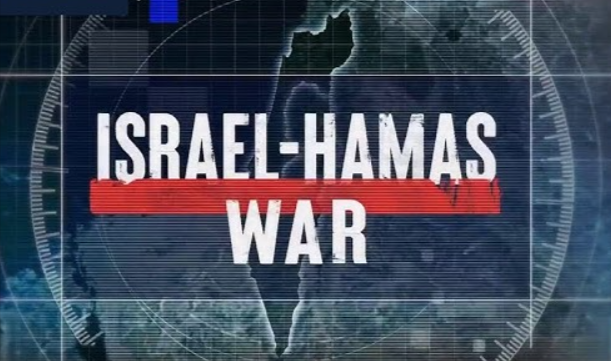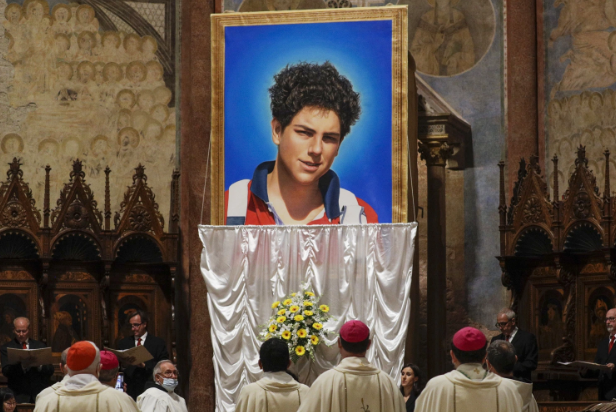On Oct. 7, the day after the anniversary of the Yom Kippur War forces, part of the terrorist organization and Gaza Strip governing body Hamas launched a surprise attack into Israel from the Gaza Strip, leading to the deaths of 1,400 people and the taking of at least 199 hostages. After firing missiles into Israel, Hamas terrorists entered Israel by paraglider, sea, and through the fence that separates Gaza from Israel and began a massacre that ended with the deaths of 1,400 Israelis. IDF (Israeli Defence Forces) checkpoints and outposts were quickly overrun near the border. Hamas troops caused havoc in Israel throughout the day until the IDF forced them back into Gaza.
“The conflict has affected me because there are people I know in Israel who had to go in the army, and some of my parents’ friends live in Tel Aviv,” sophomore Jacob Goldstein said. I want there to be a two-state solution, but I know it’s not that simple. Both peoples have a right to the land, and neither want to leave.”
With the closing of the initial attack, Israel began and has continued to launch constant airstrikes at Gaza. The intent was to destroy military targets such as the homes of known Hamas leadership, known bases of operation, and later on, Hamas tunnel systems. However, a considerable amount of purely civilian infrastructure has been hit as well, including the University of Gaza. It was believed that the missile that hit the parking lot of Al Ahli Hospital was Israeli, however, that theory was quickly proven false and Hamas has failed to bring evidence that the IAF was responsible.
Mossad (the Israeli Intelligence agency) is widely considered the best intelligence agency in the world and has had years since the last conflict, in 2008, to mark targets and map Hamas tunnel systems as well as tunnel entrances. Hamas has had the same amount of time to continue expanding these tunnels into a system that spans hundreds of miles. Israel originally employed bunker-busting munitions to attempt to destroy the tunnels, when they ran out of bunker busters they switched to high-explosive munitions which have caused considerable collateral damage in the form of civilian death. The IAF (Israeli Air Force) has also in very limited amounts, used White Phosphorus gas in high-density civilian areas. A war crime under Protocol III of the 1980 Convention on Certain Conventional Weapons. Total Palestinian deaths from Israeli bombing numbers at just over 3,400 civilian deaths. Total casualties (Injured, dead, and missing) are upwards of 19,000.
“I think our community as a whole has a huge Israeli and Muslim population,” sophomore Abdul Feroz said. “Obviously innocent people shouldn’t be harmed and it’s sad to see so many of our Jewish and Muslim friends being affected.”
Another Israeli response to Hamas was starting a siege by cutting off food, water, medical aid, and electricity to Gaza. Israel has already been blockading Gaza for 17 years, however, basic needs were allowed to come through. Now nothing, no matter how necessary it is, is getting through. What little food and water is in Gaza is most likely being taken by Hamas. Electricity in Gaza is also controlled by Israel so Israel may cut off electricity as they like.
On Oct. 13, Israel said that the one million people in Northern Gaza had 24 hours to evacuate south. Evacuating so many would have been an impossible feat and the U.N. informed Israel of this, however, Israel didn’t budge on the time constraint. It was widely believed that an Israeli ground invasion was coming however no such ground invasion has happened. Hamas is heavily concentrated in the North and the evacuating of civilians prevents Hamas from using them as human shields, which they have been doing quite a lot. Examples of such actions include Hamas having military bases under hospitals and schools to discourage the enemy from hitting their bases. Hamas’ headquarters is also under the Al Shifa Hospital the biggest hospital in Gaza.
Israel has its hands tied, it has been warned not to launch a ground invasion as they’ve been warned by Iran not to invade, and warned by the United States that if they move in they are not allowed to occupy it. A ground invasion would also cause massive civilian deaths to both the IDF and Hamas. There is also the possibility that if the IDF moves in, Hamas will start killing hostages. Bombing Gaza as they have been doing also causes civilian death no matter what. Despite the possible consequences, an Israeli ground invasion is becoming more and more likely. And the air strikes will continue for the duration of the conflict.
The U.N. has attempted to pass a resolution condemning all violence against civilians in Gaza as well as encouraging humanitarian aid entering Gaza. However the resolution was vetoed by the United States citing that the resolution failed to underline Israel’s right to self-defense, with 12 U.N. members voting for it, the U.S. voting against it, and Russia and Britain abstaining. The U.N. has spent the short duration of the conflict attempting to get humanitarian aid into Gaza and the people out.
The conflict has affected everyone around the world, especially here in Skokie where we have massive Jewish and Muslim populations.
“I think it’s affecting our community a lot more than people realize,” Health teacher Karin Wick said. “My heart goes out to them because there’s a lot of innocent victims in this kind of thing.”
This conflict is upsetting and truly horrible for those caught in the crossfire as well as those who have to sit on the other side of the world wondering if their loved ones are okay.















